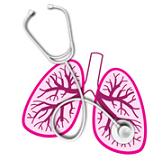Advertisment
ERS Report 2013 – Severe asthma patients less responsive to treatment

European asthma project sheds light on the characteristics of a poorly understood condition. People with severe asthma, who are often described as ‘steroid-dependent’, are actually less likely to respond to the treatment they depend on, when compared to people with mild asthma.
The study, presented at the European Respiratory Society (ERS) Annual Congress in Barcelona, represents the first analysis of a cohort of patients from an unparalleled research project that will collect over 3 million samples from 300 children and 700 adults with severe and non-severe asthma, and without asthma.
Although asthma is common, it is not widely known that there are different types of the condition. Experts don’t yet understand why some people suffer a more severe form of the disease than others.
The EU-funded U-BIOPRED* project is looking at how severe asthma differs from one person to another in the hope of categorising the disease into sub-groups. The aim is for researchers to develop more personalised medicine, which treats the specific disease in each specific individual.
The results of this initial study have described common characteristics found among children and adults with severe asthma. The key findings include:
In adults
- 55% of adults with severe asthma took regular oral corticosteroids and yet showed greater airway obstruction than the mild/moderate cohort.
- Patients with severe asthma still experienced exacerbations and severe symptoms despite taking high doses of the corticosteroids.
In children
- The level of airway obstruction in severe and mild/moderate asthma was similar.
- The severe asthma group had higher FeNO levels (fraction exhaled nitric oxide), which is a measurement used to diagnose asthma.
David Gibeon, lead author of this study from Imperial College, London, said: “We would like to understand why people with more severe asthma are less responsive to the effects of corticosteroids. Our parallel work on the ways in which patients with asthma respond to corticosteroid treatment, which is a commonly-used treatment for asthma, show that asthmatics may become less responsive to this treatment in many different molecular ways. This initial analysis will provide an overview of the groups which exist within asthma, which will help us develop a more personalised approach to treating the individual patient with asthma.”
A second study from the U-BIOPRED project was also presented at the meeting. This investigated the use of an electronic nose platform to analyse breath samples of asthma patients. The aim was to classify patients based on their exhaled molecular patterns rather than on traditional clinical characteristics. The study included breath samples from 57 patients and was able to find common patterns within four sub-groups of severe asthma patients. The findings represent a further step towards a biological classification of severe asthma and the development of more specific treatments for different groups of asthma patients.
Peter Sterk, project lead for U-BIOPRED, said: “The findings of both these studies take us one step closer to understanding more about severe asthma. We know that people with this condition suffer from repeated exacerbations of symptoms and do not respond as well to treatment, but we don’t know why this is the case. In order for us to help improve the lives of these people, we need to make a full biological and clinical “fingerprint” of each patient, by embarking on a huge analysis of data including a wide-range of samples from CT scans, to sputum samples, analysis of a person’s genetics and results from bronchoscopies. The U-BIOPRED project is doing that and we are confident that it will take us one step closer to developing personalised treatment for this condition.”
U-BIOPRED (Unbiased Biomarkers for the Prediction of Respiratory Disease Outcomes) represents a European collaboration of academia, the pharmaceutical industry and patient organisations, funded by the Innovative Medicines Initiative (IMI), Europe’s largest public-private initiative. In U-BIOPRED, adult and paediatric severe asthma patients are undergoing intensive studies aimed at better classifying severe asthma. The goal is to accelerate the development of therapies for asthma by enabling more specific targeting of subgroups, or sub-phenotypes of individuals with asthma. In essence, a step towards personalised medicine.
Find out more: http://www.ubiopred.european-lung-foundation.org/





